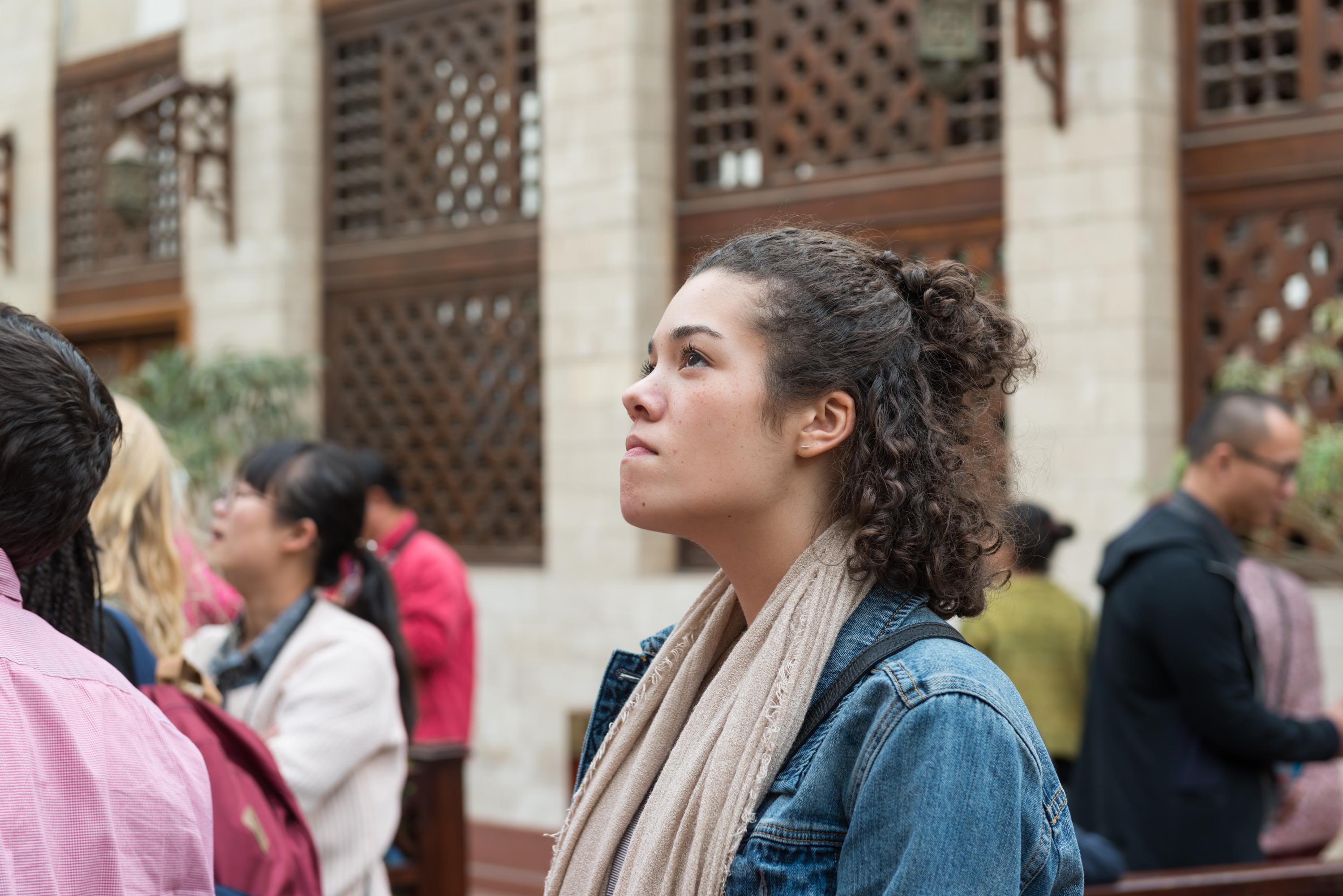Ijtihad and Renewal in Modern Times
The American University in Cairo (AUC) in collaboration with Nohoudh Center for Studies and Research offer a transformative two-week summer institute titled Ijtihad and Renewal in Modern Times. This institute is specially designed for researchers and postgraduate students engaged in Islamic studies and its intersections with other knowledge domains. The curriculum delves deeply into the central theme of Ijtihad and Renewal, a subject that has sparked debate in Islamic discourse for decades.
We follow a unique approach to Ijtihad and Renewal reopening the topic through a sophisticated amalgamation of Islamic and humanistic knowledge, blending theoretical perspectives with practical applications.
Participants will gain in-depth theoretical knowledge on contemporary issues related to Ijtihad and Renewal and develop general research skills essential for navigating these complex discussions.
Eligibility
The course is ideally suited for graduate students in Islamic studies, Middle East studies, history, political science and international relations. Advanced undergraduate students in their final year, who demonstrate a strong commitment to pursuing Islamic studies at the graduate level, may also be considered.
Language of Instruction
Arabic
Apply Now للغة العربية اضغط هنا
Learning Outcomes
Gain advanced knowledge of the key debates around 'Ijtihad and Renewal' in Islamic studies.
Enhance abilities in critical reading and analysis of primary Islamic texts and contemporary scholarly work.
Engage actively with current research trends and methodologies in Islamic studies.
Duration and Location
- Two weeks: July 14 – July 25, 2024
- Sessions will run daily from 9 am to 3 pm
- AUC New Cairo campus
- Fridays and Saturdays off
* The program spans two weeks, each day featuring six hours of structured learning sessions, including foundational lectures and interactive discussion groups.
Tuition Fees
Nohoudh Center for Studies and Research is funding the program for students.
Program fund includes:
Accommodation offered at the University Residences
Stipend for meals and transportation
Field trips and class materials
Who can apply?
Researchers and postgraduate students engaged in Islamic studies.
Certification
All the institute participants will receive a certificate of participation from AUC.
About the Instructors
Mohamed Serag
Mohamed Serag is a professor of Islamic studies in the Sheikh Hassan Abbas Sharbatly Department of Arab and Islamic Civilizations at The American University in Cairo. Previously, he served as a professor and head of the Islamic law department at Alexandria University. He has also been a visiting professor at Sana’a University and chair of the Department of Islamic Law at Cairo University. Serag has authored, translated and co-edited numerous books on Islamic law, covering topics such as the Islamic law of trusts, Islamic legal theory and practice, Islamic laws of contract, inheritance and bequests, the Islamic banking system and torts in Islam.
Ahmed Mahmoud
Ahmed Mahmoud is an Egyptian writer and researcher currently lecturing on Islamic history and civilization at the Faculty of Dar Al ‘Uloom, Cairo University. He studied at the Faculty of Dar Al ‘Uloom, where he graduated and earned his PhD in 2014. His interests include the history of ideas and religious sects in medieval Islamic history. Among his published works are The Establishment of Parallel Islam: Popular Sufism in Anatolia, The Naqshbandiyya in Iran and Transoxiana: Origin, Context, and Principles and Akbari Sufism: Its Supporters and Critics in Mamluk Egypt - A Historical Study. He has also translated works from English, including, The Second Formation of Islamic Law: The Hanafi School in the Early Modern Ottoman Empire by Guy Burak.
Abdullah Al Juday’
Professor of Islamic Studies at several European universities and Director of the Al-Judai Center for Research and Consultancy in Leeds, United Kingdom. He holds a PhD in Islamic Economics and a Master's degree in Islamic Studies. He provides consultancy services in Islamic financial transactions, offers fatwas on social issues, and acts as an arbitrator in commercial and personal disputes. Al-Judai has made research contributions in Islamic sciences and curriculum development. Al-Judai is a prominent author with numerous works on important topics such as Quranic sciences, Islamic jurisprudence, and Islamic banking services.
Mutaz Al Khatib
Mutaz Al Khatib is an associate professor of Islamic moral philosophy and the coordinator of the MA program in applied Islamic ethics at the College of Islamic Studies and the Research Center for Islamic Legislation and Ethics. He has held visiting positions at various institutions and has lectured at numerous universities worldwide. He is on the editorial board of the Journal of Islamic Ethics and the book series Studies in Islamic Ethics and leads a project on genomics and Islamic ethics. Al Khatib has authored several books and published over 30 academic articles.
Ayman Saleh
Ayman Saleh is a professor of jurisprudence and its fundamentals at the College of Sharia and Islamic Studies at Qatar University. He holds a PhD in jurisprudence and its fundamentals from the University of Jordan. He has lectured at the Asmariya University for Islamic Sciences in Libya and has joined both the Universiti Brunei Darussalam and Universiti Islam Sultan Sharif Ali, where he previously served as the head of the department of jurisprudence and its fundamentals and dean of the College of Sharia and Law. Saleh has a keen interest in the fundamentals of jurisprudence, transactional and family jurisprudence, technology and education. He has authored several books, including "Indications and Text," "The Impact of Justifying the Text on Its Reference," "The People of Words and the People of Meanings" and "The Objectives of Sharia Knowledge." He has also published more than 30 research papers.
